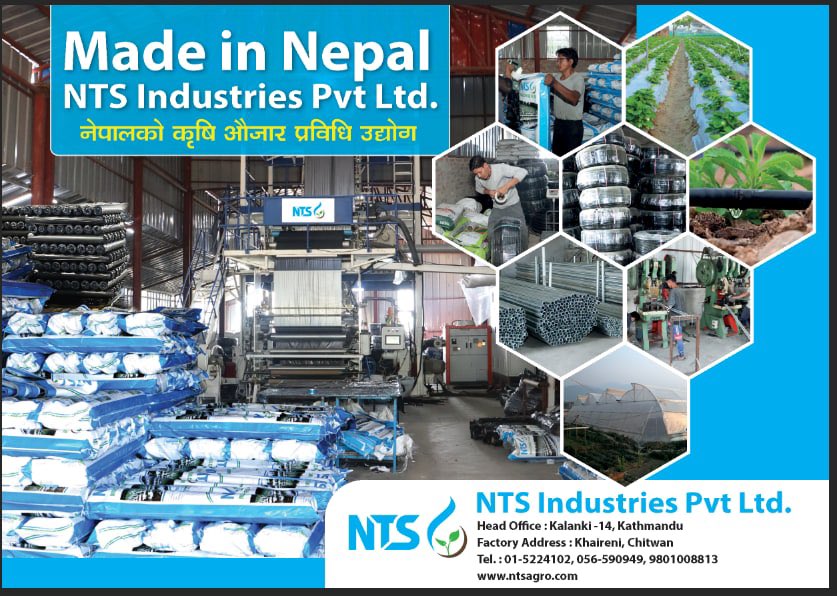 Nepal is in the process of intensifying and diversifying its agriculture to meet national demands for food, but also to increase agricultural exports. Both intensification and diversification may lead to increased use of agrochemicals such as pesticides. However, pesticides, when used inappropriately, can affect agricultural productivity, thus reducing the sustainability of agricultural intensification and diversification, and can result in adverse effects on human health, the environment and water quality. Some crops are sprayed with more than one type of chemical and, consequently, food can contain residues of a number of different pesticides. While there is some scientific evidence about the effects of individual chemicals on our health, there is little research regarding how combinations of pesticides react: this is often referred to as the cocktail effect.The problem is, as our reliance on chemical pesticides increases (along with their cost), their effectiveness is declining. Crop yields lost to insects are greater now than they have ever been, even with increased toxicity. Consumer resistance to the use of chemical pesticides, together with the growing problem of pest resistance, is encouraging farmers to adopt organic farming methods, or production systems which make minimal use of chemicals.
Nepal is in the process of intensifying and diversifying its agriculture to meet national demands for food, but also to increase agricultural exports. Both intensification and diversification may lead to increased use of agrochemicals such as pesticides. However, pesticides, when used inappropriately, can affect agricultural productivity, thus reducing the sustainability of agricultural intensification and diversification, and can result in adverse effects on human health, the environment and water quality. Some crops are sprayed with more than one type of chemical and, consequently, food can contain residues of a number of different pesticides. While there is some scientific evidence about the effects of individual chemicals on our health, there is little research regarding how combinations of pesticides react: this is often referred to as the cocktail effect.The problem is, as our reliance on chemical pesticides increases (along with their cost), their effectiveness is declining. Crop yields lost to insects are greater now than they have ever been, even with increased toxicity. Consumer resistance to the use of chemical pesticides, together with the growing problem of pest resistance, is encouraging farmers to adopt organic farming methods, or production systems which make minimal use of chemicals.
There are certain crops like vegetables in which use of pesticides are taking place on commercial basis. In those areas where farmers are doing commercial vegetable farming, we find the misuse of pesticides. The vegetable farming is one area where one can find rampant use of pesticides. Our researches have shown that vegetable is the highest consumer of pesticides in Nepal. These are the certain crops where pesticides are either misused or overused. Overall, the total quantity of pesticides use in Nepal is low. Of the total amount, vegetable crops consume higher amount of pesticides as compared to cereal crops. To understand why pesticide problems are so persistent, what the reasons are for .regulatory failure and how these problems might be solved or circumvented, is a complex and challenging endeavor.
One factor which cannot be ignored when considering problems related to pesticide usage is the attitude of the users themselves. Although in general the knowledge and awareness of the pesticide user has risen due to continuous educational efforts of various parties, many still do not pay sufficient attention to the safety and health aspects during use of these chemicals. The detection of pesticide residues exceeding allowable limits in food crops is considered one of the long standing problems in Nepal despite various actions taken by the government to overcome it. Application of pesticides not in compliance with label recommendations such as over dosing, using the pesticides on non- recommended crops, failing to observe pre-harvest intervals etc. Despite various actions taken by the relevant agencies, poisonings due to pesticides is still one of the problems faced. There are a number of reasons contributing to this problem and these include knowledge, attitude and practices among farmers.
By carefully considering the advantages and disadvantages of pesticide usage, it is essential that pesticides should be managed as judiciously as possible in order for us to obtain more benefits with less negative impact.In the light of these developments, changes to the method used to manage pesticides are required. These changes must be based on a policy that aims to eliminate all significant risks to human health and environment potentially from pesticides use and also incorporates sound production systems.
Therefore, sustainable growth of the agriculture sector, and protection of human health and the environment in Nepal require effective regulation and management of pesticides. The government under the financial support of FAO has launched a two-year project titled ‘Strengthening pesticide management in agriculture to reduce risks to health and environment’, which is aimed at improving the health condition of vegetable farmers and consumers through effective pesticides management.The project alsoaims to strengthen pesticide management capacity of public and private sectors including those of farmers for reducing pesticide residues in agricultural products. These objectives can only be achieved effectively through partnerships between Government, the Agro-chemical industry, Farmers, Community Based Organizations, Non- Governmental Organizations, consumer groups and other stakeholders nationally and through international initiatives. Under this project, the Plant Protection Directorate (PPD) has beenworking in four districts(Kavre, Bara, Dhading and Kapilvastu ), identified based on high pesticide consumption and vegetable production rates, to improve the health status of the crop producers and the consumers.
The project worth $350,000 funded by the UN Food and Agriculture Organization has been implemented in above mentioned four districts. The government has also allocated $540,000 to establish lab facilities for pesticide residue analysis in six proposed lab sites—Kathmandu, Nepalgunj, Butwal, Pokhara, Chitwan and Biratnagar.
The current project proposed to train them on TOT on GAP with support of IPM and pesticide risk reduction and develop as a master trainer for IPM and pesticide management trainings at group level. Periodic refresher trainings would help them updated on current pest management tools/techniques and enhance their knowledge and skills on crop protection. In view of insufficient skilled manpower and ineffective services provided by DADO and its underneath bodies, the local farmers’ facilitators could be efficiently and sustainably used in dissemination of innovative agricultural technologies as well as providing pest diagnostic services at local level.
The overall goal of the programme is to contribute to a sustainable pesticide management system in Nepal in order to regulate pesticide use by farmers, taking into account the whole pesticide life cycle from registration and procurement, import/local manufacture of pesticides, to distribution, use and monitoring, including quality control and waste management, and to improve the environment, health of growers and the surrounding community, and to stimulate the economic performance of the Nepalese agricultural sector. The specific objectives of the Project are:
- To reduced pesticide risks in agriculture ensuring food safety, and minimizing adverse effects on health and environment.
- To promote communication on risk reduction.
The outputs of the project includethe strengthened pesticide registration capacity and enforcement of regulations, Strengthened government laboratories for Rapid Bioassay of Pesticide Residues (RBPR, Increased compliance of private sector to pesticide legislations, regulations and COP, Increased compliance of farmers, farmers’ groups and cooperatives to safe handling and application of pesticides for production of safer crop products and Enhanced awareness of consumers to increase their capacity to choose safer crop products. The expected impact of the TCP is to achieve better health of crop producers, pesticide handlers, consumers and environment. The outcome will be reduced pesticide risks in agriculture ensuring food safety, and minimizing adverse effects on health and environment.
Project’s communication plans focus on selected target groups: decision- and policy-makers in government; technical personnel in fields related to the work; NGOs, crop producers and the private sector with interests in Project’s fields of concern; and media representatives. Crop producers and the consumers are the major and direct beneficiaries. The crop producers’ particularly vegetable growers, small farmers will learn techniques on minimization of the use of chemical pesticides and their safe and judicious application. Around 60 groups of farmers covering about 2000 farm households in four districts will get directly benefitted from training and supports of the project. Policy level training, improved SOP, Code of Practice and mass awareness building will benefit the farmers all over the country.The technicians of RBPR Lab are also benefitted from lab handling training and other support of the project.
The key challenges in relation to pesticides management in Nepal which need to be addressed through the project are:
- Improvement of policy, legal base and code of practices
- Improvement of institutional and systemic capacity of pesticide management;
- Improvement of technical capacity in IPM/GAP
The following is a brief overview of majornotable progress/accomplishments achieved against the project target and activities:
- Develop draft pesticide policies/plans
- Curriculum development on pesticide risk reduction, analysis and management
- Develop draft CoP for pesticide management
- Develop final record keeping system for agro-vets
- Organize IPM-based GAP and CoP on safe use and handling of pesticide ToT training to FFs in project districts
- Prepare draft manual for GAP-based IPM and safe use and handling of pesticide training to crop producer group (CPGs)
- organize Pesticide entrepreneurs, agro-vets (retailers) and traders’ training on safe pesticide handling and management and Code of Practice (Kavre)
- Develop draft Standard Operating Procedures (SoP) for Rapid Bioassay of Pesticide Residues Laboratory
BY – Dr. Dilli Ram Sharma, Program Director as well as National Project Coordinator






Add Comment